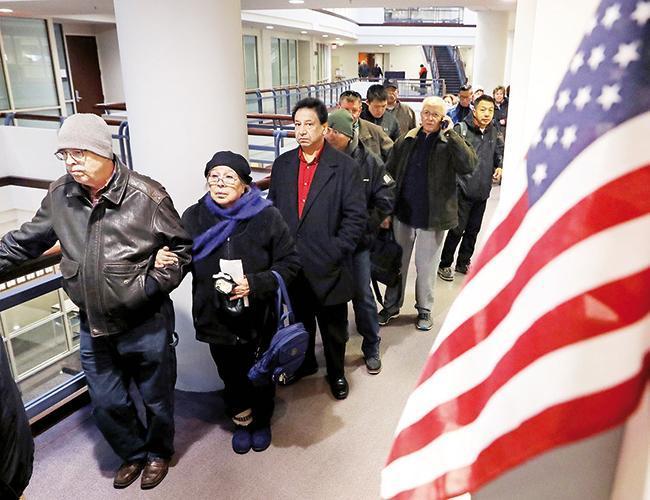Goldman expects $5 billion hit from US tax overhaul
NEW YORK - The Associated Press

Goldman Sachs expects to take a $5 billion hit to profits for the fourth quarter and year because of the tax overhaul signed into law last week.
The New York bank on Dec. 29 became one of the first to release details on how changes in the tax code will affect how money parked overseas is handled.
Two thirds of the $5 billion are due to changes in repatriation taxes, when funds are returned from overseas, the bank. The remainder includes the “effects of the implementation of the territorial tax system and the remeasurement of U.S. deferred tax assets at lower enacted corporate tax rates.”
Goldman, which releases fourth-quarter and annual results in mid-January, had profits of $2.35 billion in the fourth quarter of 2016, and annual profits of $7.4 billion. Revenue last year was $30.61 billion.
U.S. companies had found ways to legally park money overseas to avoid the higher U.S. corporate tax. It has been expected that changes in the law would prompt some of those companies to return money to the U.S., potentially $2.5 trillion or more.
The tax measure signed into law by President Donald Trump this month spreads benefits across a wide array of American industry, including banks.
Finance and insurance companies would have paid an effective corporate tax rate of 26.1 percent next year. Now, it will be 14.3 percent. Analysts at Goldman Sachs have estimated that the tax law will boost big-bank earnings per share by 13 percent next year. The top beneficiary will be Wells Fargo, which has been dogged by scandals over cheating customers. It will enjoy an 18 percent earnings surge in 2018, Goldman estimates.
Economists believe the overall effect on the economy will be muted because of cuts to the U.S. corporate tax rate.
Historically, repatriated profits have not had a broad effect on the U.S. economy.
A 2004 law temporarily cut taxes on repatriated profits to 5.25 percent, from 35 percent. That led 843 companies to bring back $312 billion. But those companies tended to use the money to buy back shares of their own stock, not to hire or expand operations.
The tax change for Goldman Sachs was revealed in a filing with the U.S. Securities and Exchange Commission early on Dec. 29.
The company did not say how changes in the tax law would affect its decisions on investments going forward.
















